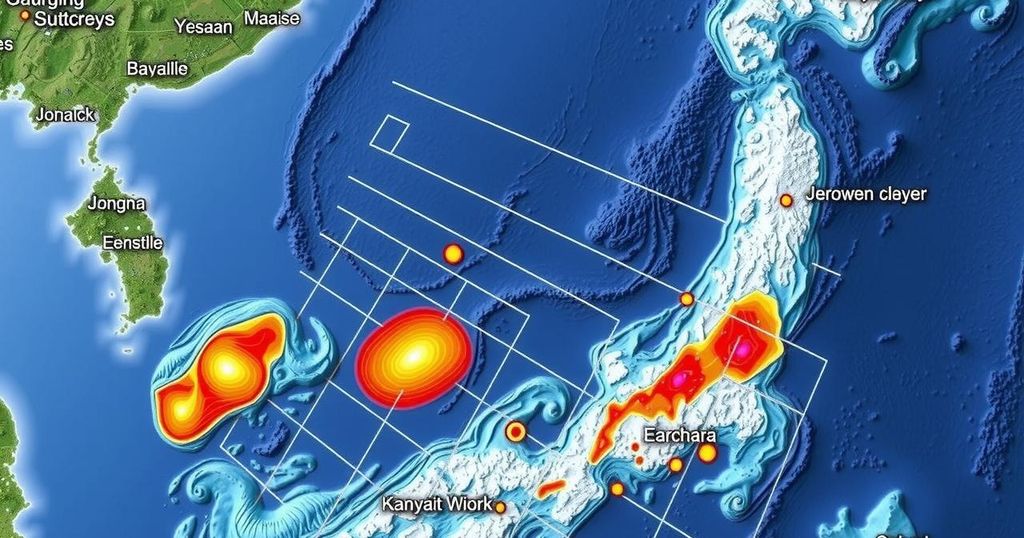No Tsunami Threat Following 6.8 Magnitude Earthquake in Japan

A 6.8 magnitude earthquake struck southwestern Japan on Monday. The USGS reported no tsunami threat, but the Japan Meteorological Agency has cautioned against entering coastal areas. Public safety is a priority as assessments continue following the seismic event.
On Monday, southwestern Japan experienced a powerful earthquake measuring 6.8 on the Richter scale. The United States Geological Survey (USGS) has confirmed that there is no tsunami threat resulting from this seismic event. However, Japan’s meteorological agency has advised caution, urging individuals to steer clear of coastal areas and refrain from entering the sea due to potential risks associated with aftershocks and related activities.
Earthquakes are not uncommon in Japan, a country located in the Pacific Ring of Fire, an area known for its tectonic activities. This region frequently experiences seismic movements and volcanic eruptions, making it crucial for the Japan Meteorological Agency to monitor seismic events closely. In the aftermath of an earthquake, assessments are promptly conducted to identify any risks, including tsunami threats, which can have devastating effects on coastal communities.
In summary, while the recent 6.8 magnitude earthquake in southwestern Japan poses no tsunami threat, it has prompted advisories from the Japan Meteorological Agency for public safety. Residents are encouraged to remain vigilant and avoid coastal areas as a precautionary measure until further assessments are completed. Continuous monitoring of seismic activities remains imperative in mitigating potential hazards in the region.
Original Source: www.cbsnews.com







